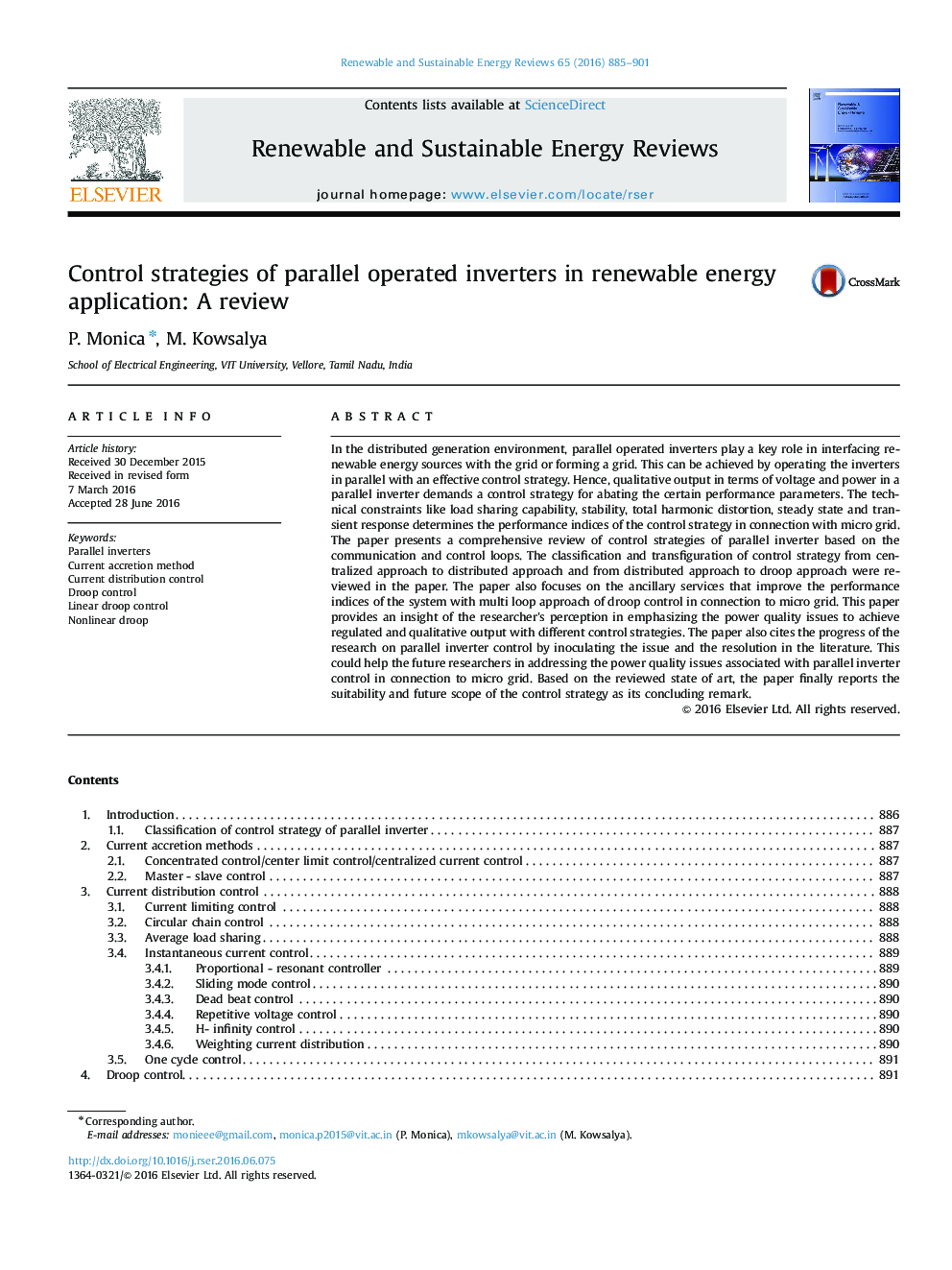| Article ID | Journal | Published Year | Pages | File Type |
|---|---|---|---|---|
| 8113088 | Renewable and Sustainable Energy Reviews | 2016 | 17 Pages |
Abstract
In the distributed generation environment, parallel operated inverters play a key role in interfacing renewable energy sources with the grid or forming a grid. This can be achieved by operating the inverters in parallel with an effective control strategy. Hence, qualitative output in terms of voltage and power in a parallel inverter demands a control strategy for abating the certain performance parameters. The technical constraints like load sharing capability, stability, total harmonic distortion, steady state and transient response determines the performance indices of the control strategy in connection with micro grid. The paper presents a comprehensive review of control strategies of parallel inverter based on the communication and control loops. The classification and transfiguration of control strategy from centralized approach to distributed approach and from distributed approach to droop approach were reviewed in the paper. The paper also focuses on the ancillary services that improve the performance indices of the system with multi loop approach of droop control in connection to micro grid. This paper provides an insight of the researcher's perception in emphasizing the power quality issues to achieve regulated and qualitative output with different control strategies. The paper also cites the progress of the research on parallel inverter control by inoculating the issue and the resolution in the literature. This could help the future researchers in addressing the power quality issues associated with parallel inverter control in connection to micro grid. Based on the reviewed state of art, the paper finally reports the suitability and future scope of the control strategy as its concluding remark.
Keywords
Related Topics
Physical Sciences and Engineering
Energy
Renewable Energy, Sustainability and the Environment
Authors
P. Monica, M. Kowsalya,
